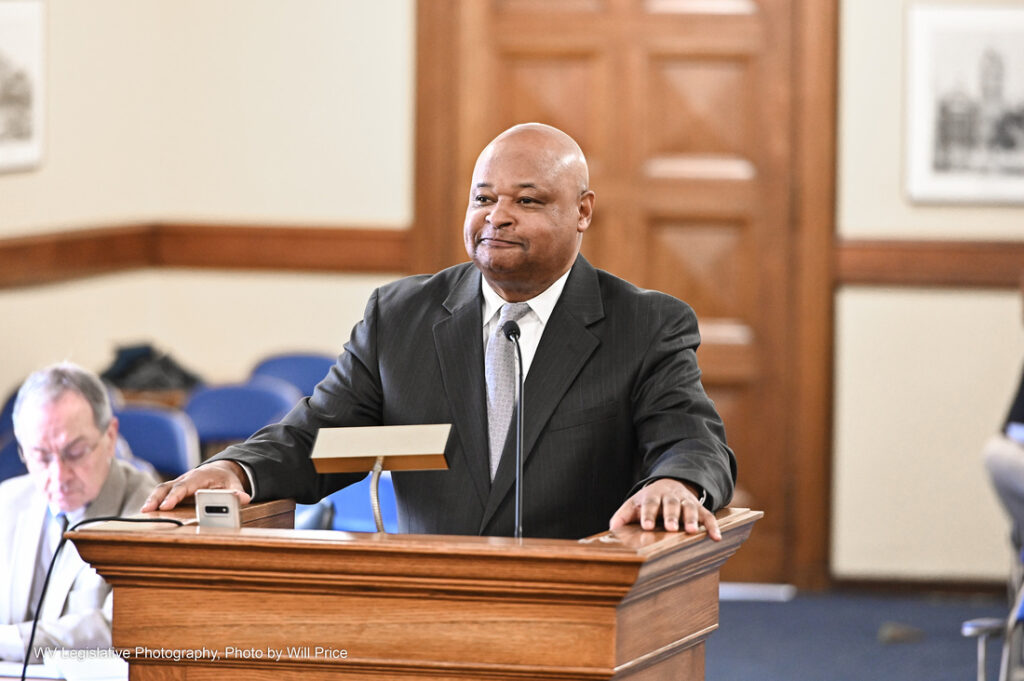The Senate Workforce Committee met after the regular floor session Friday morning to hear two reports on the state’s workforce situation: one about what’s being done, and one about what could be done.
Jason Green, deputy director of Workforce West Virginia updated the committee on the department’s job-matching and employment initiatives. Green told the committee the state’s workforce participation is 55 percent, one of the lowest in the country.
Afterwards, the committee heard from Rev. Matthew Watts, the longest serving member of the state’s Workforce Development Board, on his plan to address workforce participation issues.
“A simple plan as to how we can invest in our people: take $300 million of remaining ARPA dollars, allocate those dollars to cities and to towns and counties for local government municipalities, based upon the percent of poor people that live in those communities of West Virginia’s total, poor people population,” Watts said. “House Speaker Roger Hanshaw’s Clay County has about 1 percent of the poor people in the state of West Virginia and gets $3 million. But that money would have to be invested strategically in projects that improve housing, health, workforce, economic and social service coordination.”
Sen. Eric Tarr, R-Putnam, thanked Watts for addressing the multiple problems challenging the state’s workforce. He pointed at the new companies coming into the state with well-paying jobs and pushed back against the idea of sending money to communities.
“Some of the investment there went through to provide the infrastructure and provide the stimulus for jobs to come here create a path for a lot of things you just described,” Tarr said. “I take some issue with a recommendation based on impoverished areas to send money back to and that redistribution, if there’s no infrastructure to support, or not sufficient funding within that availability to support that infrastructure that can create those jobs.”
Watts agreed, commending the lawmakers for funding infrastructure projects, and bringing new jobs into the state, but said West Virginia’s workforce needs to be ready to take advantage.
“I think you’d probably agree that if we don’t have the educated workforce, if we don’t have people with the skills to fill those jobs, then it’s a challenge right now,” Watts said. “You talk to anyone in advanced manufacturing, they don’t have the workforce. I don’t think he’s either/or, I think we are investing wisely, appropriately in infrastructure, in job creation. I’m trying to say let’s take a look at the labor force. Let’s take a look at the educational levels of the children in school and some that have recently completed school. They don’t have the skills to do a lot of these jobs.”
Watts also stated that after more than 20 years of advocating at the capital, this will be his last year.
“This is my last campaign. You will not see me in the legislature after this year,” he said. “I’ve been coming for 23 years, I got 20-some pieces of legislation I personally have had a hand in writing and several pieces of legislature are codified in law. And most of them have never been implemented, have never been executed.”
In conclusion, Watts told the committee if the state keeps doing what it’s currently doing, things will only get worse.






















